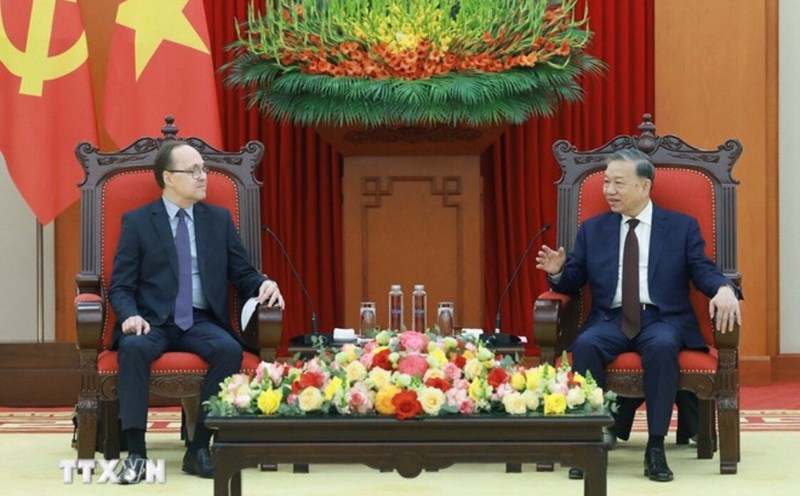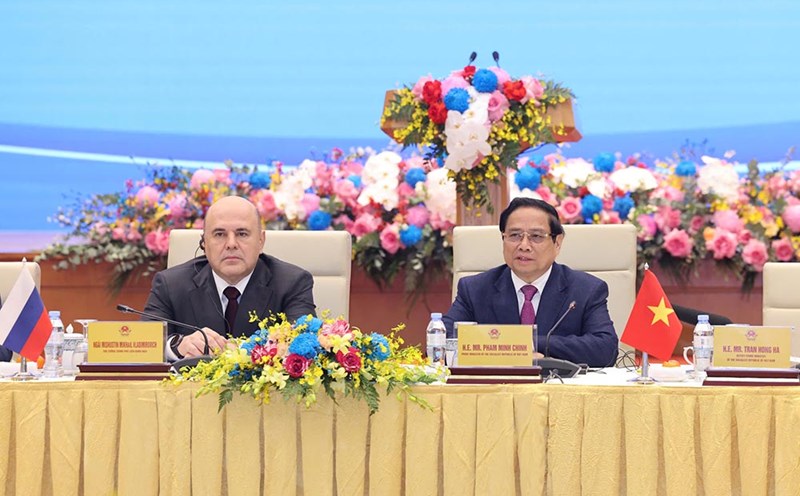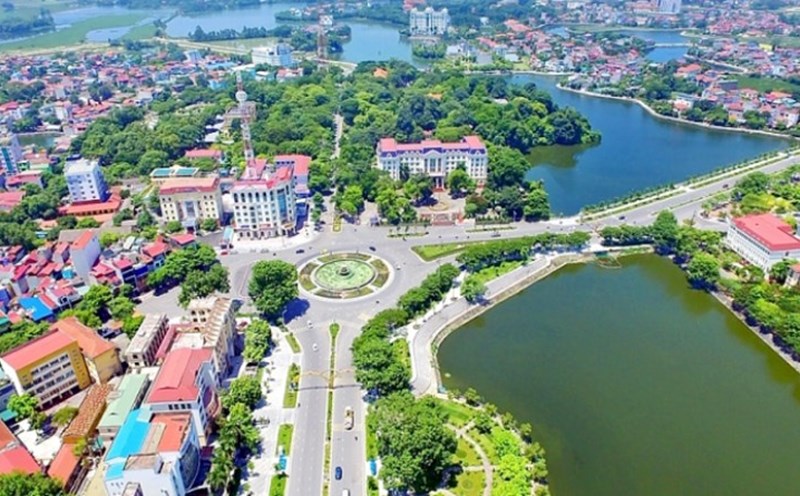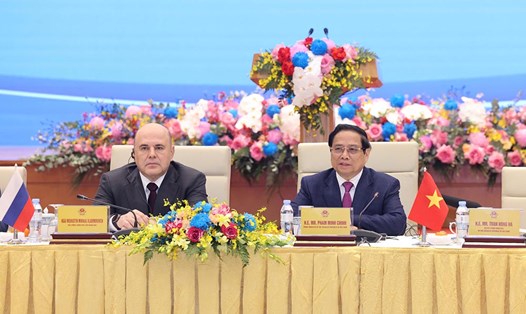At the invitation of Russian Foreign Minister Sergey Lavrov, Deputy Prime Minister and Minister of Foreign Affairs Bui Thanh Son paid an official visit to the Russian Federation from April 2 to 4, 2025.
The Ministry of Foreign Affairs said that on April 2, at the headquarters of the Russian Foreign Ministry, the Foreign Ministers of the two countries held talks. The two sides discussed and evaluated the Vietnam - Russia cooperation situation, exchanged and agreed on many measures to further strengthen and enhance bilateral relations in various fields, and discussed international and regional issues of mutual concern.
The two Ministers discussed the best preparations for the visit and attendance at the 80th anniversary of the Great Patriotic Defense War in Moscow, Russia by General Secretary To Lam at the invitation of Russian President Vladimir Putin in May.
Deputy Prime Minister and Minister of Foreign Affairs Bui Thanh Son emphasized that Vietnam consistently considers Russia as one of the important priority partners, of strategic significance and top reliability in Vietnam's foreign policy.
Minister Lavrov welcomed and appreciated the visit of the Deputy Prime Minister, Foreign Minister Bui Thanh Son took place in the context that the two countries are celebrating the big days such as 50 years of the liberation of the South, the reunification of the country, 80 years of Vietnam National Day, 80 years of the great national defense war and many exciting activities to celebrate the 75th anniversary of diplomatic relations with a series of important foreign leadership activities of the two countries; Affirming Vietnam is a priority partner in Russia's foreign policy in the Asia -Pacific region.
The two countries' ministers highly appreciated the continued dynamic development of the Vietnam - Russia Comprehensive Strategic Partnership in all fields. Political relations have been constantly strengthened, the level of trust is high, delegation exchanges at all levels, especially at high levels, take place regularly. Economic and trade cooperation returned to positive growth.
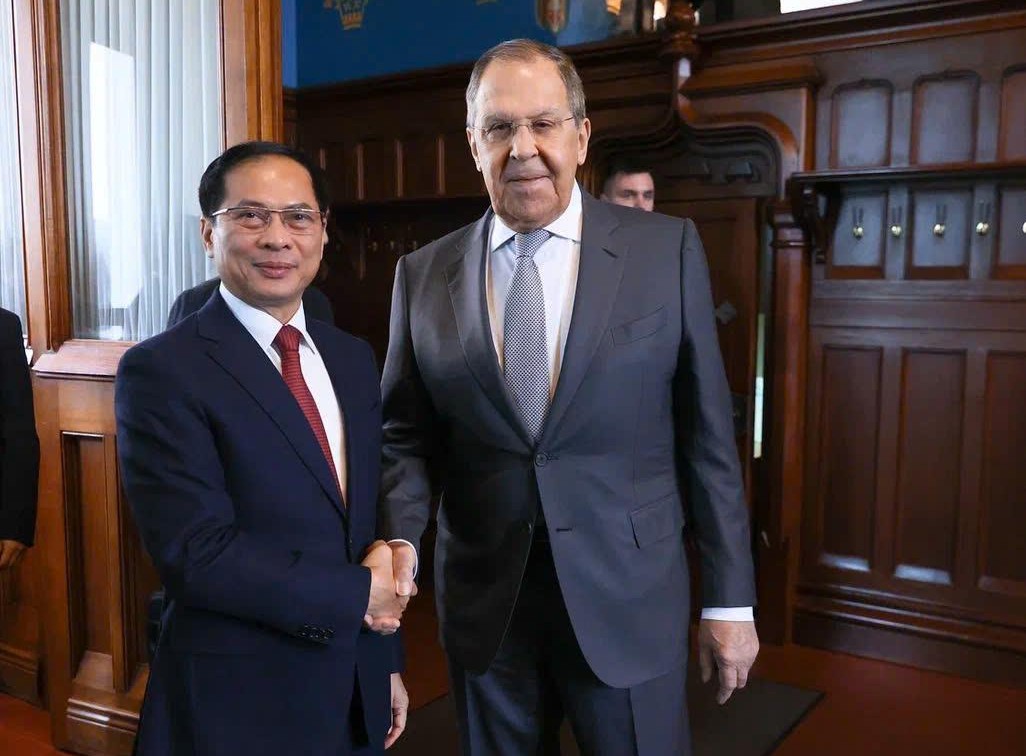
The two sides were pleased to see that cooperation in areas such as defense, security, education and training, science and technology, culture, tourism, humanities and localities of the two countries continues to achieve impressive results despite many obstacles brought by the world geopolitical situation.
The two countries' focus on removing difficulties and obstacles in cooperation and gradually restoring direct flights creates leverage and strong motivation to promote effective cooperation in all fields.
In order to promote the traditional friendship and comprehensive strategic partnership between Vietnam and Russia in the context of the new situation, especially Vietnam entering a new era and Russia entering a new stage of development, the two sides agreed to continue to increase delegation exchanges at all levels, especially visits by senior leaders on Party, State, National Assembly and people-to-people exchanges; further enhance cooperation between the two Ministries of Foreign Affairs; expand and deepen cooperation in areas such as energy, especially green energy, renewable energy, transport infrastructure, logistics, science and technology, agriculture, medicine, culture, tourism, education - training; further promote the role of the Vietnam - Europe Free Trade Agreement, focus on implementing key projects and developing new economic cooperation projects to soon become pillars of Vietnam - Russia trade cooperation.
Deputy Prime Minister and Minister of Foreign Affairs Bui Thanh Son suggested that Russia continue to consider exempting visas for Vietnamese citizens carrying ordinary passports to promote tourism to Russia.
At the talks, the two sides also exchanged and shared many issues about the international and regional situation. Vietnam highly appreciated the role and contribution of Russia in multilateral organizations, agreed to continue to strengthen the coordination of actions at important organizations and forums, especially the United Nations, ASEAN, BRICS as well as in response to non -traditional security challenges; Agreeing to uphold and comply with international law, including the 1982 Convention on the Law of the Sea (UNCLOS 1982) for the maintenance of peace, security, stability and cooperation in the region.

